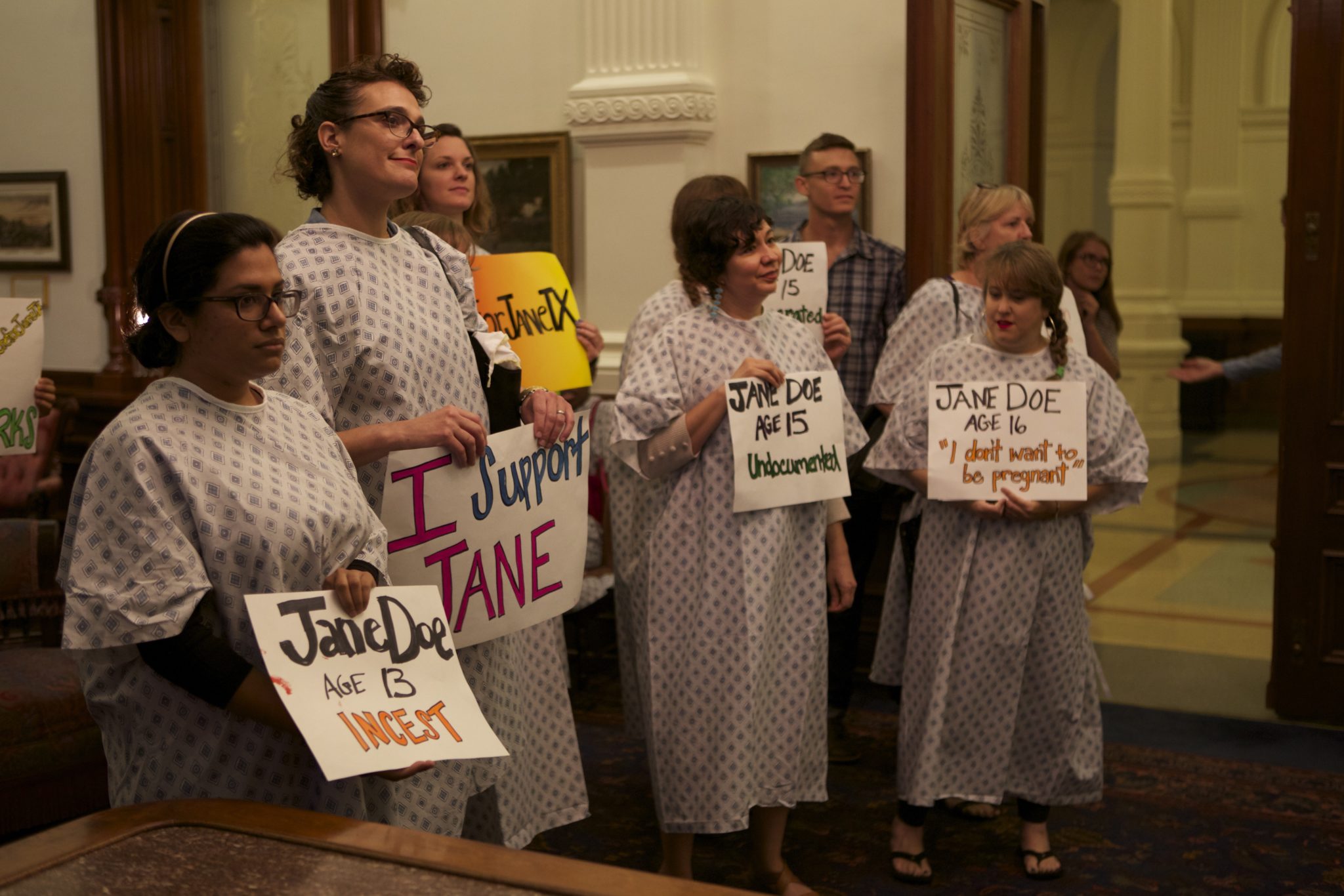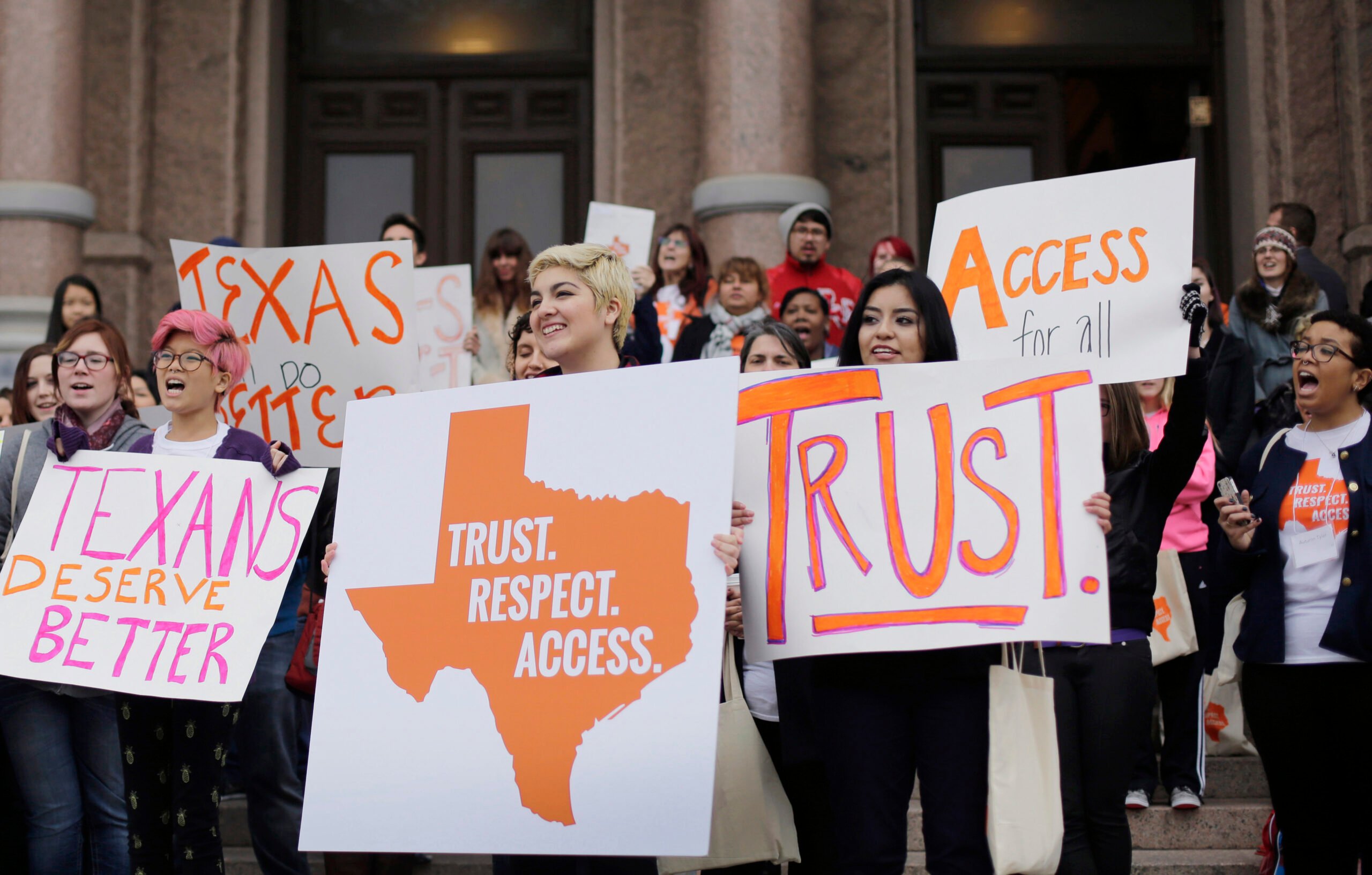
Court Committee Puzzled by New Abortion Restrictions


How does the judicial system best protect a minor’s identity and constitutional rights as she navigates the legal process to get an abortion without her parents’ involvement, while also complying with a new state law that makes significant changes to that process?
Those are the questions lawyers and judges are grappling with as they sort out the intricacies of House Bill 3994, which makes significant changes to the judicial bypass law that allows minors to obtain an abortion without parental consent. The Texas Supreme Court Advisory Committee, made up of 46 lawyers and judges, is charged with proposing rules for the court to consider as it implements HB 3994, which supporters argued closes “loopholes” in parental consent law needed to prevent minors from getting abortions by evading their parents’ wishes.
Reproductive rights organizations, which opposed the law during the legislative session, maintained that the law places additional restrictions on young, vulnerable Texans, many of whom have experienced trauma, abuse or neglect. According to Jane’s Due Process, a statewide organization that provides legal representation for minors, about 200 teens apply for a bypass every year.
At the Friday committee meeting, lawyers and judges discussed technical rules that stem from two major changes to the bypass process: the new requirement that a bypass application must be filed in the county where the minor applicant lives, and the removal of a provision that deems a bypass is automatically granted should a judge not rule on a case.
The committee appeared split on how best to protect a minor’s identity throughout the bypass process. When lawmakers were debating HB 3994, reproductive rights groups worried that requiring a minor, known often in bypass cases as “Jane Doe,” to file an application in her home county would compromise her anonymity, especially in smaller communities where “Jane” might know or be related to courthouse personnel, or judges themselves. The law makes an exception to the home-county filing rule for counties with 10,000 residents or fewer, or if the minor’s parent is a judge.
The question up for consideration Friday was whether, and how, to include a minor’s name in court filings so that her identity is best protected while also complying with other parts of the law.
Austin attorney Lisa Hobbs, along with about a dozen other committee members, proposed keeping a minor’s name off of all legal forms and the official court record entirely. The judicial system keeps many types of cases confidential, such as adoption cases, she said, but abortion is highly politicized and judges, doctors and even patients could be targets of violence. Full anonymity would ensure no court personnel, for example, motivated by curiosity or moral objections to abortion, could find the minor’s full name.
“The venue change increases the need for anonymity,” Hobbs said. “People who grant abortions, people who get abortions, they’re targeted in a different way than someone who is giving their child up for adoption. That’s just the reality in America right now.”
Judge Robert Pemberton, who sits on the Texas Third District Court of Appeals, along with several other committee members, raised concerns that keeping a minor’s name off paperwork or out of the court record would make it harder to comply with other parts of the law. They wondered: How is a judge, as required by HB 3994, to report a suspected case of sexual abuse if he or she doesn’t know the minor’s full name? Or, how would a judge or attorney know that the minor isn’t refiling a rejected application in a different county or court — what Pemberton called “forum shopping,” which is explicitly prohibited under HB 3994. He argued that keeping the minor’s full name on legal paperwork or in the court record, available only to a judge, protects “the confidentiality of the identity,” as the law requires.
After several hours of back-and-forth on the question of anonymity versus confidentiality, Ana Estevez, a district judge from Amarillo, pointed out that HB 3994’s requirement that a minor appear in court in person will ultimately compromise her identity regardless of what’s contained in legal paperwork.
“People are going to talk as soon as that child walks into the courthouse,” she said. “I don’t know that we can fix this problem that has to do with small jurisdictions, where everyone knows their business anyway.”
The committee also addressed another major component of HB 3994 — the removal of the so-called “deemed granted” provision, which originally held that if a judge failed to rule on a bypass application within the required two days, a minor’s application for a bypass was automatically granted. Now, under HB 3994, a judge must rule in five days, and if a judge doesn’t issue a ruling, minors are left in legal limbo because there is no explicit requirement that a judge ever make a decision on their case.
During legislative debate, abortion rights organizations, as well as the anti-abortion group Texas Alliance for Life, warned that removing such a provision may violate a constitutional requirement that a bypass be granted expeditiously. Committee members appeared to share the same concern, so the group unanimously agreed that, should a judge not rule within the required five days, a new judge will be appointed either by the Texas Supreme Court or a regional presiding judge.
Jane’s Due Process executive director Tina Hester said the decision to require a new judge is critical, since pregnant minors have a limited window in which to access legal abortion and wait times for abortions are increasing as clinics shutter due to Texas’ omnibus anti-abortion law.
“This at least gives [minors] some assurance that they will have their day in court,” Hester said.
Joe Pojman, executive director of Texas Alliance for Life, told the Observer he’s satisfied with the committee’s approach to addressing the “deemed granted” provision. Pojman’s organization supported most of HB 3994’s other requirements.
“The minor has to have an opportunity to have an abortion without the involvement of her parents,” he said. “That’s not our preference, but that’s the reality issued across the states by the [United States] Supreme Court … I predict that what the [Texas] Supreme Court comes up with will protect parents’ rights far more than what’s happening now.”
The court will spend the next few months analyzing recommendations and input from the committee before adopting its own rules before HB 3994 takes effect on January 1, 2016.
Correction: An earlier version of this story inaccurately quoted Joe Pojman concerning the state and federal Supreme Courts. The Observer regrets the error.


